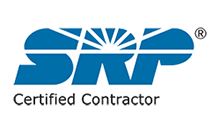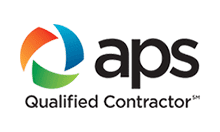When it comes to hiring a professional plumber, it’s important to follow the right steps and consider certain factors to ensure you find the best person for the job. Plumbing issues can be complex and require the expertise of a qualified professional. By taking the time to research and make informed decisions, you can avoid costly mistakes and ensure that your plumbing needs are met efficiently and effectively.
Key Takeaways:
- Consider the qualifications, experience, and reputation of a plumber before hiring them.
- Ask for recommendations and read online reviews to gather information about a plumber’s track record.
- Get quotes from multiple plumbers and compare their prices, including any additional costs for parts or unexpected expenses.
- Ensure that the plumber is licensed, insured, and willing to provide proof of these credentials.
- Have a written contract that outlines the scope of work, cost, and any guarantees or warranties.
Qualifications and Experience
One of the crucial factors to consider when hiring a professional plumber is their qualifications and experience in the industry. It’s essential to ensure that the plumber you choose is licensed and insured, as this provides a level of assurance that they have met the necessary requirements and are legally allowed to perform plumbing work. Licensing also indicates that they have completed the required training and have the knowledge and expertise to handle various plumbing jobs.
When assessing a plumber’s qualifications, it’s also important to consider their experience. A plumber with years of experience is more likely to have encountered a wide range of plumbing issues and developed effective solutions. They will have a deeper understanding of the complexities of plumbing systems, allowing them to diagnose and resolve problems efficiently.
Trade Certifications and Specializations
In addition to licensing and experience, you may also want to consider any trade certifications or specializations the plumber may have. Some plumbers undergo additional training and certification in specific areas, such as gas fitting or pipe relining. These additional qualifications indicate a higher level of expertise in their chosen field and can be particularly beneficial if you require specialized plumbing services.
References and Past Projects
To further assess a plumber’s qualifications and experience, it can be helpful to ask for references and examples of their past projects. Contacting previous clients can provide insights into the plumber’s professionalism, workmanship, and reliability. You can ask about the quality of their work, their ability to meet deadlines, and their overall satisfaction with the plumber’s services. Examining past projects can also give you an idea of the plumber’s capabilities and whether they have experience in handling similar plumbing tasks to yours.
| Qualifications and Experience Checklist |
|---|
| ✔ Ensure the plumber is licensed and insured |
| ✔ Consider the plumber’s years of experience |
| ✔ Check for any trade certifications or specializations |
| ✔ Ask for references and contact previous clients |
| ✔ Examine examples of past projects |
Reputation and References
To ensure you hire a reputable plumber, it’s essential to do your due diligence and gather information about their reputation and ask for references. By taking these steps, you can gain valuable insights into their past work and the satisfaction of their previous customers. Here are some key aspects to consider:
1. Online Reviews
One way to gauge a plumber’s reputation is by reading online reviews. Look for reputable websites or platforms where customers can provide feedback and ratings. Pay attention to both positive and negative reviews, as they can provide a balanced perspective on the plumber’s performance and customer satisfaction. However, be cautious of any extreme reviews that might be biased or unfounded.
2. Word-of-Mouth Recommendations
Another reliable way to assess a plumber’s reputation is by seeking recommendations from trusted sources, such as friends, family, or neighbors. Personal referrals can give you firsthand accounts of experiences with a particular plumber. Ask about the quality of their work, their professionalism, and whether the job was completed on time and within budget.
3. Requesting References
When contacting a plumber, don’t hesitate to ask for references directly. A reputable plumber should be willing to provide you with a list of past customers who can vouch for their skills and reliability. Reach out to these references and ask about their overall experience, the plumber’s communication, and if they encountered any issues during the project.
| Red Flags to Watch Out For | Questions to Ask |
|---|---|
| Refusal to provide proof of licensing or insurance | Are you licensed and insured? |
| Requesting cash-only payments | What payment options do you accept? |
| Pressuring you into services without proper explanation | Can you explain the details of the work that needs to be done? |
By taking the time to research a plumber’s reputation and gather references, you can make a more informed decision and ensure that you hire a reliable professional. Remember, a reputable plumber will be transparent, have positive reviews, and willingly provide references upon request.
Comparing Quotes and Costs
When hiring a professional plumber, it’s wise to obtain quotes from several plumbers and compare their costs to ensure you get the best value for your money. Here are some tips to help you navigate this process:
- Get multiple quotes: Reach out to several plumbers in your area and request quotes for the specific work you need. It’s important to provide detailed information about the project to ensure accurate quotes.
- Compare the scope of work: Review each quote carefully and compare the services included. Make sure that all plumbers are providing estimates for the same tasks to facilitate an accurate comparison.
- Consider additional costs: In addition to the base price, it’s essential to ask about any potential additional costs. Some plumbers may charge extra for parts, travel time, or unforeseen complications that may arise during the job.
- Factor in experience and reputation: While price is an important consideration, it should not be the sole deciding factor. Take into account the plumber’s qualifications, experience, and reputation. A more experienced plumber with a solid track record may be worth paying a slightly higher price.
To help you keep track of the quotes, costs, and other relevant details, consider creating a table like the one below:
| Plumber | Quote | Scope of Work | Additional Costs | Experience |
|---|---|---|---|---|
| Plumber A | $500 | Replace kitchen sink | $50 for parts | 10+ years of experience |
| Plumber B | $450 | Replace kitchen sink | No additional costs mentioned | 5 years of experience |
| Plumber C | $550 | Replace kitchen sink | $75 for parts, $25 travel fee | 15+ years of experience |
By comparing the quotes, scope of work, additional costs, and experience of each plumber, you can make an informed decision and choose the plumber that best fits your needs and budget.
Written Contracts and Guarantees
To protect yourself and ensure clarity on the project details, it’s crucial to have a written contract with the professional plumber that outlines the work to be done, the cost, and any guarantees or warranties. A written contract serves as a legally binding agreement that protects both parties involved in the plumbing project. It provides a clear understanding of the expectations and responsibilities of each party, minimizing any potential misunderstandings or disputes down the line.
Elements of a Strong Contract
When drafting a contract with a professional plumber, there are several key elements that should be included:
| Key Elements | Description |
|---|---|
| Scope of Work | A detailed description of the plumbing work to be performed, including specific tasks and timelines. |
| Cost | A breakdown of the total cost, including labor, materials, and any additional fees or charges. |
| Guarantees or Warranties | Any promises or assurances made by the plumber regarding the quality of their work and potential remedies for any issues that may arise. |
| Payment Terms | The agreed-upon payment schedule, including any upfront deposits, milestone payments, and the final payment upon completion. |
| Timeline | An estimated timeline for the completion of the project, including start and end dates. |
Review Before Signing
Before signing the contract, carefully review each provision to ensure you understand and agree to all terms. If there are any areas of concern, discuss them with the plumber and seek clarification or modifications if necessary. It’s also essential to keep a copy of the signed contract for your records and reference throughout the project.
Reading Online Reviews
Online reviews can be a valuable source of information when it comes to hiring a professional plumber, as they provide insights into the experiences of previous customers. By reading reviews, you can get a sense of the plumber’s reputation, reliability, and quality of work.
When searching for online reviews, it’s important to use trusted platforms such as Google, Yelp, or Angie’s List. These websites typically have a large number of reviews and ratings from real customers. Look for plumbers with a high overall rating and positive feedback from multiple customers.
In addition to the overall rating, pay attention to specific comments and experiences shared by customers. Look for recurring themes or issues that may be important to you. For example, if multiple reviews mention excellent customer service or prompt response times, it can be a positive sign of the plumber’s professionalism.
| Pros of Reading Online Reviews | Cons of Reading Online Reviews |
|---|---|
|
|
Keep in mind that while online reviews can be helpful, they should not be the sole factor in your decision-making process. It’s important to consider other factors such as qualifications, experience, and referrals from trusted sources. By utilizing online reviews in conjunction with other research, you can make a more informed decision when hiring a professional plumber.
Red Flags to Watch Out For
While searching for a professional plumber, it’s essential to be aware of potential red flags that may indicate untrustworthiness or lack of professionalism. By recognizing these warning signs, you can protect yourself from hiring the wrong plumber and potentially facing costly and unsatisfactory outcomes.
Refusal to Provide Proof of Licensing and Insurance
A reputable plumber should always be willing to provide proof of their licensing and insurance. These credentials demonstrate their expertise and commitment to following industry standards and regulations. If a plumber refuses to provide this information or gives vague answers, it’s a clear indication that they may not be properly qualified or insured.
Requesting Cash-Only Payments
Be cautious of plumbers who insist on cash-only payments. While it’s common for professionals to request a deposit or partial payment upfront, legitimate plumbers will typically accept various payment methods, including credit cards or checks. Cash-only requests may suggest an intention to avoid proper documentation or circumvent tax obligations.
Pressure Without Proper Explanation
If a plumber pressures you into making immediate decisions or recommends extensive repairs without a clear explanation, it’s a cause for concern. A professional plumber should take the time to thoroughly assess the situation, explain the problem, and offer transparent solutions. Beware of high-pressure sales tactics that push you into unnecessary services or repairs.
| Red Flag | Warning Sign |
|---|---|
| Refusal to Provide Proof of Licensing and Insurance | Indicates potential lack of qualifications and insurance coverage. |
| Requesting Cash-Only Payments | Suggests a desire to avoid proper documentation and potential tax obligations. |
| Pressure Without Proper Explanation | Signifies potential push for unnecessary repairs or services. |
By keeping an eye out for these red flags, you can better navigate the process of hiring a professional plumber. Remember to prioritize qualifications, experience, reputation, and clear communication to ensure you find the right plumber who will deliver quality service and peace of mind.
Importance of Licensing and Insurance
When hiring a professional plumber, it’s crucial to prioritize those who are licensed and insured, as these credentials provide assurance of their competence and protect you from potential risks. A licensed plumber has undergone the necessary training and has met the requirements set by the relevant authorities. This means they have the knowledge and skills to handle various plumbing tasks effectively. Additionally, a licensed plumber is also likely to stay updated with the latest industry standards and practices.
Insurance is equally important when it comes to hiring a plumber. With insurance coverage, both you and the plumber are protected in case of any accidents or damages that may occur during the project. If an uninsured plumber were to get injured on your property, you could be held liable for their medical expenses. On the other hand, if a licensed plumber has insurance, any damages to your property caused by their work would be covered by their insurance provider.
By prioritizing licensed and insured plumbers, you can have peace of mind knowing that you’re working with professionals who are qualified and responsible. Before hiring a plumber, always ask for proof of licensing and insurance, and don’t hesitate to verify their credentials with the relevant licensing authority and insurance provider. Taking this step will protect you from potential fraudulent or incompetent individuals and ensure that your plumbing project is completed to the highest standards.
Getting Recommendations
Seeking recommendations from trusted friends, family, or neighbors can be an effective way to find a qualified and reliable plumber. When you reach out to your network for referrals, you can benefit from their firsthand experiences and insights. They can provide valuable information about the plumber’s professionalism, work quality, and overall satisfaction.
Start by asking people you trust if they have recently hired a plumber and if they were happy with the service provided. You can also inquire about the plumber’s punctuality, communication skills, and pricing transparency. Gathering multiple recommendations will allow you to compare different plumbers and narrow down your options.
Questions to Ask
When seeking recommendations, consider asking the following questions:
- Did the plumber complete the job on time and within the agreed-upon budget?
- Was the plumber responsive and easy to communicate with?
- Did the plumber demonstrate professionalism and respect for your property?
- Were there any issues or concerns during or after the work was done?
By asking these questions, you can gain valuable insights into the plumber’s performance and determine if they are a good fit for your needs. Remember, personal recommendations can be a reliable source of information, helping you make a more informed decision when hiring a professional plumber.
| Benefits of Recommendations | Considerations |
|---|---|
|
|
Conclusion
Hiring a professional plumber shouldn’t be taken lightly, and by following the right steps and considering the appropriate factors, you can have peace of mind knowing that you’ve found a qualified and trustworthy plumber for your needs.
When searching for a plumber, it’s crucial to consider their qualifications, experience, and reputation. Ensure that the plumber you hire is licensed and insured, as this will guarantee that they have met the necessary requirements and are committed to providing quality work. Additionally, take the time to research their background and ask for references from previous customers to get a better understanding of the plumber’s track record.
Obtaining quotes from multiple plumbers and comparing their costs is also important. Be sure to inquire about any additional expenses for parts or unexpected issues that may arise during the project. This will help you make an informed decision while considering your budget.
Furthermore, asking for references and reading online reviews can provide valuable insights into the plumber’s reliability and customer satisfaction. Look for reviews from trusted sources to get a comprehensive understanding of the plumber’s reputation and the quality of their work.
Lastly, it’s essential to have a written contract with the plumber. The contract should clearly outline the scope of work, cost, and any guarantees or warranties provided. Having everything in writing will protect both parties and ensure that there are no misunderstandings during the project.
Remember to be aware of red flags when hiring a plumber. If they refuse to provide proof of licensing or insurance, insist on cash-only payments, or pressure you into services without proper explanation, it’s best to look for another plumber who prioritizes transparency and professionalism.
By following these guidelines and considering the necessary factors, you can confidently hire a professional plumber who will meet your needs and deliver high-quality workmanship.
FAQ
What qualifications and experience should I look for when hiring a professional plumber?
When hiring a professional plumber, it’s important to look for someone who is licensed and insured. Additionally, considering their experience in the field is crucial to ensure they have the necessary skills to handle your plumbing needs with expertise.
How can I assess a plumber’s reputation and ask for references?
To assess a plumber’s reputation, you can read online reviews from previous customers. Additionally, asking the plumber for references and contacting those individuals can provide insights into their track record and the quality of their work.
How can I compare quotes and costs from different plumbers?
To compare quotes and costs, it’s recommended to get quotes from multiple plumbers. Ensure that the quotes include a breakdown of the costs, including any additional charges for parts or unexpected expenses. This way, you can make an informed decision based on the pricing and services offered.
Should I have a written contract with the plumber?
Yes, it’s crucial to have a written contract with the plumber. This contract should clearly outline the scope of work, cost, and any guarantees or warranties provided. Having a written agreement protects both you and the plumber and ensures that both parties are aware of their responsibilities.
How can I read online reviews to make an informed decision?
When reading online reviews, it’s important to seek out reliable sources such as reputable websites or platforms. Pay attention to both positive and negative reviews to get a balanced view. This will help you gain insights into the plumber’s reputation and the quality of their work.
What are some red flags to watch out for when hiring a plumber?
Red flags to watch out for include plumbers who refuse to provide proof of licensing or insurance, ask for cash-only payments, or pressure you into services without proper explanation. These warning signs indicate potential issues or unethical practices, and it’s best to avoid such plumbers.
Why is it important to hire a licensed and insured plumber?
Hiring a licensed and insured plumber is important because it ensures that the plumber has met the necessary requirements and is qualified to perform the work. Insurance provides protection for both the plumber and the homeowner in case of any accidents or damages that may occur during the job.
How can I get recommendations for a professional plumber?
You can get recommendations for a professional plumber by asking friends, family, or neighbors for their trusted plumbers. Additionally, reaching out to local plumbing supply stores or construction professionals can also provide reliable recommendations.











